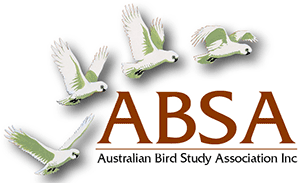SEASONAL AND DIURNAL PATTERNS IN ABUNDANCE OF WATERBIRDS AT A WASTE STABILIZATION POND, VICTORIA
| Posted: |
03/06/2021 |
| Author(s): |
Andrew J. Hamilton, Iain R. Taylor, Pamela Rogers |
Seasonal and diurnal patterns in abundance of waterbirds (excluding waterfowl: Anatidae) on a wastestabilization
pond (Pond Nine) within the Lake Borrie System at the Western Treatment Pla:-it, Werribee, Victoria
were determined. The Western Treatment Plant is an important Ramsar site, mainly for the waterbird populations
that occur there. Pond Nine often supports large numbers of waterbirds. However, seasonal and diurnal use of
the site has received little attention to date.
The pond was used as a non-breeding site by large numbers of Straw-necked Ibises and also by more variable
numbers of Australian White Ibises, Pied Cormorants, Little Pied Cormorants, Little Black Cormorants, Australian
Pelicans, Silver Gulls, Eurasian Coots and Hoary-headed Grebes.
Straw-necked Ibises, Australian White Ibises, Pied Cormorants, Little Pied Cormorants, Little Black Cormorants,
Silver Gulls and Australian Pelicans demonstrated crepuscular peaks of abundance. None of these species feed
regularly at Pond Nine. In contrast, species that fed at or near Pond Nine, such as Eurasian Coot, Hoary-headed
Grebe and consistent numbers of Black-winged Stilts were observed throughout the day.
>> Download Abstract |
File Size: 118KB
>> Download Complete PDF | File Size: 2 MB
